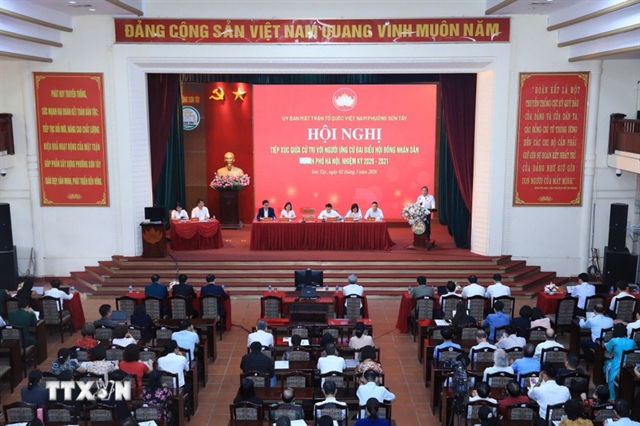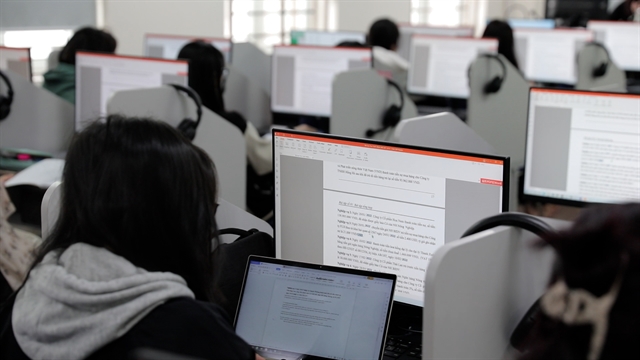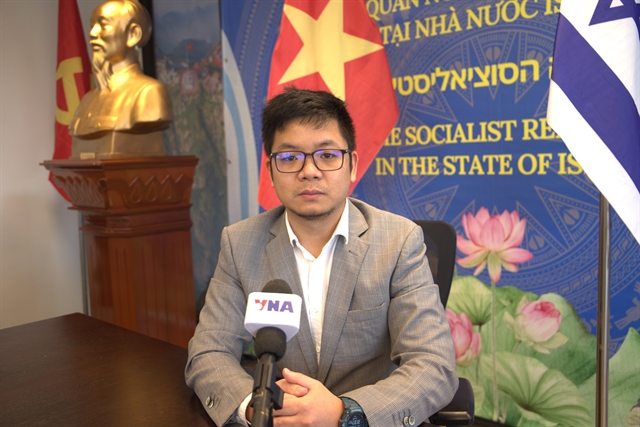 Society
Society

Nhật Hồng *
HÀ NỘI — Valuable tool in education and research? Or a lazy cheat hack that could spell the end of traditional teaching?
ChatGPT, the latest high-tech tool using artificial intelligence (AI) has certainly got people talking, and thinking.
With the ability to produce highly accurate answers to virtually any prompt given, ChatGPT has been going viral since its launch last November. But as the new technology makes waves among the tech-savvy youth, concerns have been raised on whether this will give way to plagiarism and dependence among students.
Powered by artificial intelligence (AI), Chat Generative Pre-Training Transformer, or ChatGPT, can gather and compile information to answer questions asked by users.
Depending on what it is asked to do, the chatbot can even alter the tone of the text or return a long-form essay with a human-like level of eloquence.
However, it is more than a life jacket for a procrastinator scrambling to finish an assignment at the last minute.
Khổng Nhật Minh, a university student in Hà Nội told Việt Nam News: “The most recent time I used [ChatGPT] was when I was struggling with the colour palette for one of my designs, so I asked the chatbot for appropriate colour mixing recipes.”
Vũ Mai Phương, another student said: “I was quite surprised when I tried using ChatGPT in my studies, which is data analysis.
“When I want to learn about new knowledge such as SQR or Power BI, it can actually produce very professional answers, and it can also do coding.”
Many people agreed that when used responsibly, ChatGPT can be an effective source of support in learning and teaching.
Nguyễn Tiến Dũng, vice-rector of Hanoi University, believed that it is not possible to deny the role of technology or how useful software like ChatGPT is to teachers and students.
“For teachers, it can help with preparing lesson plans, developing lectures and collecting materials for learners. For students, it can look up information for their learning purposes.
“This technology is reshaping the concept of teaching because it promotes an emerging approach in education, towards the authority and autonomy of learners.
“However, to utilise its strengths and limit its downsides, schools need to develop regulations, rules and guidelines on the use of technology and supporting tools in education.”
 |
| Many people agreed that ChatGPT can be an effective tool in learning and teaching with responsible use. — VNS Photo Nhật Hồng |
Regulating the use of ChatGPT has been at the centre of discussions in education institutions shortly after the application’s launch four months ago.
Several universities in the US, UK, France and India have banned the use of ChatGPT, while some have blocked access to the website from the school’s network.
Others, such as Australia’s Group of Eight universities, are considering returning to ‘pen and paper’ exams to prevent the negative consequences of the AI chatbot.
While being able to produce impressive answers, ChatGPT is not without limitations. It uses its own database, which is currently only updated until 2021.
It is also known to fumble with basic maths, several experiments have found.
Many students and educators who were asked believe that the problems lie not in the technology itself, but in the way people decide to use it.
English student Nguyễn Thị Giang, who has tried using the chatbot in her studies, said: “I think that every technology product has its advantages and disadvantages, the most important thing is how I will use those products.
“I believe students can use ChatGPT for learning purposes, primarily for referencing and finding information. But the output results depend entirely on us.
“AI products help us process work more quickly for jobs that do not require emotions. But for jobs that need human emotional thinking, I think it will be human work and not assigned to robots,” she added.
While AI is only in its infancy, it is evident that software like ChatGPT is already revolutionising education and training.
Khoa Anh Việt from the University of Languages and International Studies’ student affairs department, who was also the school’s former IT (information technology) centre director, said: “For quite some time, we have gotten used to learning through lectures, but in fact, this information can easily be found from various sources, and ChatGPT is one of those.
“It won’t be of much value if we maintain lecturing classes, but instead, we can take advantage of class time for experiential activities and problem-solving skills.
“I personally believe that AI is a useful tool. But we will also need to change the method of teaching and evaluation, and the one thing to remember is to help learners develop their own core qualities."
Sharing the same perspective, Hanoi University’s vice-rector Nguyễn Tiến Dũng said: “Schools also need to have activities and programmes to guide learners on how to utilise technology tools for learning.
“Students need to be equipped with skills to develop competencies for critique, evaluation, information filtering and know whether a piece of data is useful.
“This will help them develop their own capabilities, developing their personality and taking the initiative in utilising appropriate information for learning rather than relying on the one-way information from these applications.” — VNS
*With additional reporting from Sean Nolan, Minh Trang, Hải Linh




